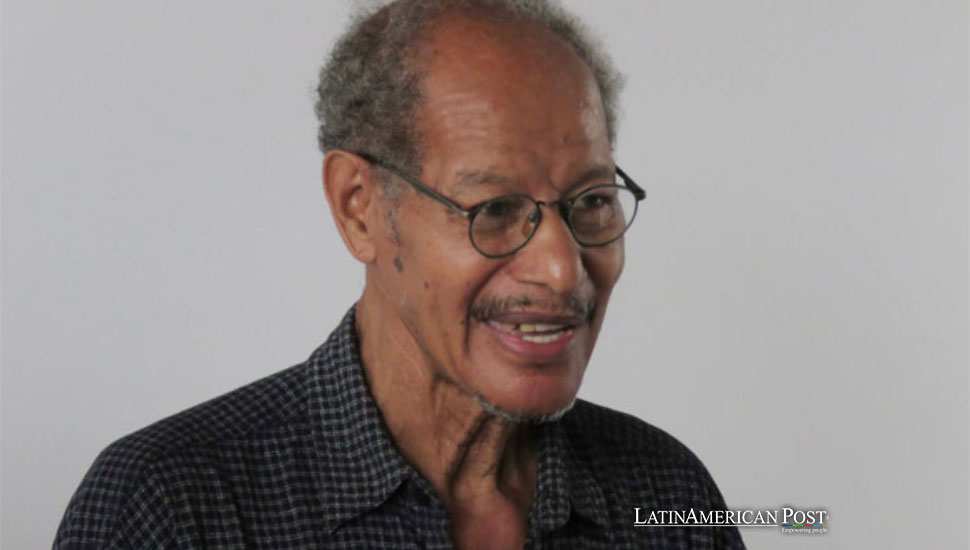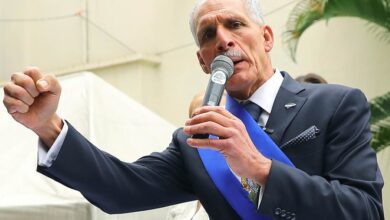Honduras Mourns the Loss of Renowned Sociologist Mario Posas

The distinguished Honduran sociologist and author Mario Posas passed away at the age of 77, reportedly due to a heart attack. Posas, known for his profound impact on the social sciences in Honduras, leaves behind a legacy of intellectual contributions.
A Scholar’s Early Journey and Contributions
Honduras’s intellectual and social landscape was dealt a heavy blow with the passing of Mario Posas, a distinguished sociologist and writer, on Tuesday. At the age of 77, Posas reportedly succumbed to a heart attack in Tegucigalpa, where he spent much of his life studying, teaching, and analyzing the social and economic fabric of his country. His death has left a void in Honduran academic circles and among those who worked closely with him in his pursuit of understanding and improving the conditions of the working class in Honduras.
Born in La Ceiba, in the department of Atlántida along the Caribbean coast, Posas grew up observing the social dynamics of a region heavily influenced by foreign capital, particularly the United States’ banana industry. His early experiences would shape his lifelong dedication to understanding and challenging the forces that shaped Honduran society. Posas was a scholar, teacher, researcher, consultant, and voice for the marginalized.
With a deep commitment to social justice, Posas’s work was characterized by his critical approach to power structures and economic exploitation that have defined much of Honduran history. Throughout his career, he published numerous books, articles, and essays that left an indelible mark on sociology, labor studies, and Honduran history.
Posas began his academic journey at the National Autonomous University of Honduras (UNAH), where he studied sociology and eventually became a professor—his time at UNAH allowed him to both learn and contribute to the development of sociological thought in Honduras, where academic exploration of social issues was still in its early stages. He later pursued higher education in Costa Rica and the United Kingdom, further honing his critical understanding of Latin American social dynamics and political economies.
Among his most notable works is Las Sociedades Artesanales y los orígenes del movimiento obrero (Craft Societies and the Origins of the Labor Movement), published by the Francisco Morazán National Pedagogical University. This book, along with others like Las luchas de los trabajadores hondureños organizados (The Struggles of Organized Honduran Workers), deeply explored the historical and social factors that shaped labor movements in Honduras. Posas sought to illuminate artisanal and labor organizations’ role in the country’s history, particularly during the 20th century, when foreign interests largely influenced the economy in mining and the banana industry.
His focus on the workers of export sectors, such as mining and bananas, was a study of economic history and a reflection on the political and social changes these labor movements spurred. Through his research, Posas highlighted the contributions and struggles of Honduran workers in shaping the nation’s political landscape.
Chronicling the Struggles of Honduran Workers
One of the defining features of Mario Posas’s work was his commitment to telling the story of Honduran workers, who he believed were pivotal in the country’s historical trajectory. In his seminal work, Las luchas de los trabajadores hondureños organizados, Posas delves into the lives of the miners, banana workers, and other laborers who played critical roles in developing the country’s economy. He demonstrated how these workers, through their labor and collective organizing, impacted the country’s political and economic evolution.
Posas’s writings illuminated the workers’ movements of the 20th century, showing how these groups sought better conditions, fair wages, and social justice in a system that often exploited their labor for foreign profit. He chronicled the rise of unions and their struggles against powerful corporate entities, most notably the U.S.-based banana companies that dominated much of Honduras’s northern region.
His analysis was rooted in the past and tied to the present, as Posas frequently drew parallels between historical labor movements and the current challenges facing Honduran workers. In a 2013 interview with EFE, Posas commented on the similarities between the economic model of early 20th-century Honduras and the present-day realities. “Today, large capital investments are concentrated in open-pit mining and water exploitation, which is causing environmental damage,” he said, highlighting the ongoing exploitation of Honduras’s natural resources by multinational corporations.
Critical Observations on Honduras’ Developmental Challenges
Mario Posas remained a sharp critic of Honduras’s political and economic systems throughout his life. He believed that much of the country’s struggles stemmed from the failure to implement the development projects promised by various governments since the return to democracy in 1982. His commentary on the nation’s inability to follow through on its economic growth and social welfare plans resonated deeply with many Hondurans who had witnessed decades of political instability, corruption, and social inequality.
In the same 2013 interview, Posas voiced his concerns about the dependency that had developed in Honduran society, with many citizens placing too much responsibility on the state while neglecting the importance of individual and collective agency. “The great problem of Honduras is the inability to execute what we say we are going to do,” he remarked, reflecting on the numerous development projects that had been proposed but never fully realized.
Posas also highlighted Honduras’s environmental challenges, particularly the destruction caused by mining and the misuse of natural resources. His work on environmental degradation and its links to foreign investment became essential to his broader critique of economic inequality and the lack of sustainable development policies in Honduras.
He believed the country’s path to development needed to include a more equitable distribution of resources, emphasizing strengthening democratic institutions, improving social welfare, and addressing environmental vulnerability. Failure to do so, Posas argued, would perpetuate the cycle of poverty and underdevelopment that had plagued Honduras for much of its history.
A Life Dedicated to Dialogue, Research, and Social Justice
Mario Posas was more than just an academic. He was deeply connected to the everyday lives of Hondurans, regularly walking through markets, engaging with people on the streets, and listening to their concerns. He was a man of simple habits who loved books, music, and meaningful conversations. His genuine interest in the lives of ordinary people informed much of his research and writing, as he sought to give voice to those often left out of academic and political discourse.
Posas was also a beloved figure at UNAH, where he taught and mentored countless students, many of whom became leaders in academia, politics, and social movements. His former colleagues and students have expressed deep sorrow at his passing, remembering him as a kind and humble man with an unwavering commitment to the pursuit of knowledge and social justice.
Beyond the university, Posas’s work as a consultant and analyst allowed him to engage with international organizations, including the United Nations, on issues related to development, democracy, and human rights in Honduras. His insights were often sought by those looking to understand the complexities of Honduran society and its place within the broader Latin American context.
Posas’s passing has prompted an outpouring of grief and reflection from various sectors of Honduran society. Political leaders, fellow academics, and activists have paid tribute to his contributions, recognizing him as a pivotal figure in the country’s intellectual and social history.
The death of Mario Posas marks the end of an era for Honduran sociology and social activism. His life and work embodied a commitment to understanding and improving the conditions of the working class in Honduras while also challenging the political and economic systems that perpetuate inequality. His legacy lives on in his writings, his students, and the countless individuals influenced by his ideas.
As Honduras continues to face the challenges of corruption, inequality, and environmental degradation, Mario Posas’s insights remain as relevant as ever. His critiques of the country’s political and economic structures and his unwavering belief in the power of collective action and social justice offer a blueprint for those seeking to create a more equitable and sustainable future for Honduras.
Also read: Argentina’s “La Llegada del Hijo” Challenges Maternal Unconditionality
In the years to come, Mario Posas’s legacy will continue to inspire new generations of scholars, activists, and everyday citizens to pursue a deeper understanding of their country and fight for the changes needed to build a better society.





